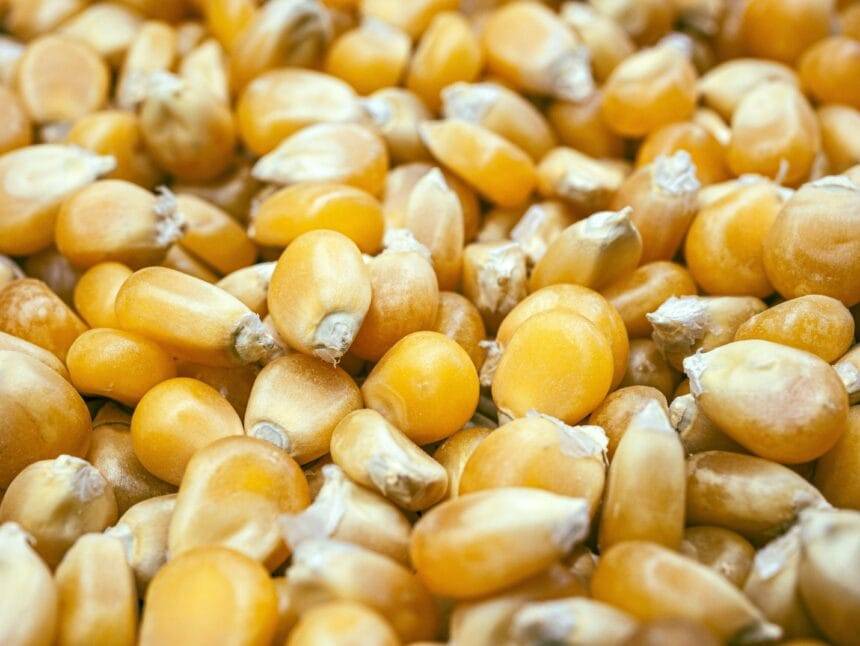Main Points In Hindi (मुख्य बातें – हिंदी में)
-
पिवोट बायो की तकनीक: कैलिफ़ोर्निया की कंपनी पिवोट बायो ने मकई के बीजों को आनुवंशिक रूप से संशोधित बैक्टीरिया से कोट किया है, ताकि ये पोषक तत्वों का उत्पादन कर सकें और इससे उर्वरक पर निर्भरता कम हो सके।
-
ग्रीनहाउस गैस उत्सर्जन में कमी: यह तकनीक उत्पादन में आवश्यक उर्वरक के 20% को प्रतिस्थापित करके ग्रीनहाउस गैसों के उत्सर्जन को कम करने में मदद कर सकती है, जो जलवायु परिवर्तन में योगदान देते हैं।
-
पर्यावरणीय चिंताएं: हालांकि यह तकनीक संभावित रूप से फायदेमंद हो सकती है, पर्यावरण समूहों ने प्राकृतिक प्रणालियों में बड़े पैमाने पर बदलाव के अज्ञात जोखिमों पर चिंता व्यक्त की है।
-
दीर्घकालिक परिणाम: आनुवंशिक रूप से संशोधित जीवों को व्यापक स्तर पर जारी करने के संभावित दीर्घकालिक परिणामों को समझना महत्वपूर्ण है, विशेषकर जब उर्वरक के उपयोग में कमी जलवायु परिवर्तन से लड़ने में सहायक हो सकती है।
- चितावनी: विज्ञान के उप निदेशक केंड्रा क्लेन का कहना है कि इस प्रकार की इंजीनियरी की गई जीवों को जटिल पारिस्थितिक तंत्र में छोड़ने के संभावित परिणामों से सावधानी बरतनी चाहिए।
Main Points In English(मुख्य बातें – अंग्रेज़ी में)
Here are the main points from the article regarding the use of genetically modified bacteria in corn seeds to reduce reliance on chemical fertilizers:
-
Genetically Modified Bacteria: Pivot Bio, a California-based company, is coating corn seeds with genetically modified bacteria that produce essential nutrients, thereby decreasing the dependency on chemical fertilizers.
-
Greenhouse Gas Emissions: The production of fertilizers contributes to greenhouse gas emissions. The technology developed by Pivot Bio could potentially replace 20% of essential fertilizers, helping to reduce these emissions.
-
Environmental Concerns: Critics, including environmental groups, express concerns about the unknown risks associated with altering natural systems on such a large scale.
-
Long-term Implications: While reducing the use of chemical fertilizers can lower greenhouse gas emissions, the widespread release of genetically modified organisms (GMOs) presents potential risks. Understanding the long-term consequences of these innovations is crucial as they become more prevalent.
- Quote on Ecological Impact: Kendra Klein, Deputy Director of Science at Friends of the Earth, highlights the risks involved by stating that we are engineering organisms for purposes not intended by nature and releasing them into complex ecosystems.


Complete News In Hindi(पूरी खबर – हिंदी में)
वैज्ञानिक रासायनिक उर्वरक के उपयोग को कम करने के लिए मकई के बीज में बैक्टीरिया के डीएनए को संशोधित कर रहे हैं, जो जलवायु परिवर्तन में महत्वपूर्ण योगदान देता है।
एरिक लिप्टन के लिए रिपोर्ट दी न्यू यौर्क टाइम्स.
संक्षेप में:
- पिवोट बायो, कैलिफ़ोर्निया की एक कंपनी, पोषक तत्वों का उत्पादन करने के लिए आनुवंशिक रूप से संशोधित बैक्टीरिया के साथ मकई के बीज को कोट करती है, जिससे उर्वरक निर्भरता कम हो जाती है।
- उर्वरक उत्पादन से ग्रीनहाउस गैसें निकलती हैं; पिवोट की तकनीक आवश्यक उर्वरक के 20% को प्रतिस्थापित करके उत्सर्जन को कम कर सकती है।
- पर्यावरण समूहों सहित आलोचक, इतने बड़े पैमाने पर प्राकृतिक प्रणालियों को बदलने के अज्ञात जोखिमों के बारे में चिंता जताते हैं।
मुख्य उद्धरण:
“हम उन चीजों को करने के लिए इंजीनियरिंग जीव हैं जो प्रकृति ने उन्हें करने के लिए डिज़ाइन नहीं किया है और उन्हें अरबों की संख्या में अविश्वसनीय रूप से जटिल पारिस्थितिक तंत्र में छोड़ रहे हैं।”
– केंड्रा क्लेन, विज्ञान के उप निदेशक, फ्रेंड्स ऑफ द अर्थ।
यह क्यों मायने रखता है:
रासायनिक उर्वरक के उपयोग को कम करने से ग्रीनहाउस गैस उत्सर्जन कम हो सकता है, लेकिन आनुवंशिक रूप से संशोधित जीवों की व्यापक रिहाई जोखिम उठाती है। जैसे-जैसे ये नवाचार बड़े होते जा रहे हैं, संभावित दीर्घकालिक परिणामों को समझना महत्वपूर्ण है।
और पढ़ें: कृषि और पर्यावरण में आनुवंशिक रूप से इंजीनियर्ड फसलों की संभावनाओं की खोज करना
Complete News In English(पूरी खबर – अंग्रेज़ी में)
Scientists are modifying the DNA of bacteria in corn seeds to reduce the use of chemical fertilizers, which significantly contribute to climate change.
Reported by Eric Lipton, The New York Times.
Summary:
- A California company, Pivot Bio, coats corn seeds with genetically modified bacteria to produce nutrients, decreasing reliance on fertilizers.
- Fertilizer production releases greenhouse gases; Pivot’s technology could reduce emissions by replacing 20% of the necessary fertilizers.
- Critics, including environmental groups, worry about the unknown risks of altering natural systems on such a large scale.
Main Quote:
“We are engineering organisms to do things that nature didn’t design them to do and releasing them in vast numbers into incredibly complex ecosystems.”
– Kendra Klein, Deputy Director of Science, Friends of the Earth.
Why It Matters:
Reducing the use of chemical fertilizers can lower greenhouse gas emissions, but the widespread release of genetically modified organisms carries risks. As these innovations expand, it is important to understand the potential long-term effects.
Learn more: Exploring the Potential of Genetically Engineered Crops in Agriculture and the Environment




